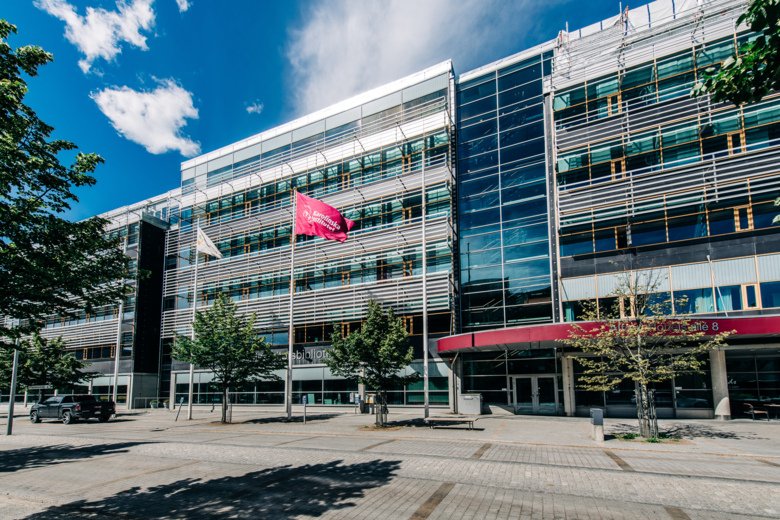About Center for Infectious Medicine (CIM)
The Center for Infectious Medicine (CIM) is a translational research center with a focus on immunology and infectious disease research, located in ANA Futura at Karolinska Institutet Campus Flemingsberg.
Quick facts
- The Center is headed by Professor Anna Norrby-Teglund who has the overall responsibility for the administration and scientific development at CIM.
- Malin Flodström-Tullberg and Johan Sandberg are Deputy Unit Heads at CIM with shared responsibility for administration and scientific development.
- The Center is organized around about 16 independent research groups and the CIM Management group.

A dynamic research environment
The Center for Infectious Medicine (CIM) is part of the Department of Medicine, Huddinge and comprises 750 square metres of fully equipped laboratory facilities in ANA Futura at Karolinska Institutet Campus Flemingsberg, where the main research activities are conducted. Over the years, some research groups have had their main activities at the Department of Microbiology, Tumor- and Cell Biology at the Karolinska Institutet Solna Campus and at the Swedish Institute for Infectious Disease Control (SMI).
Several group leaders have spent longer or shorter sabbaticals at international universities, and there is a continuous exchange of students and postdocs between CIM and other KI departments and national and international universities. By having groups at different locations and inviting researchers to work at CIM, research across disciplines is favoured and the access to research infrastructures increased.
Platform for a new generation of research leaders
Since its inauguration, CIM has successfully attracted some of the most talented young Swedish scientists actively engaged in human immunology and infectious disease research. One of the main aims of CIM is to provide an environment and platform for the fostering of a new generation of research leaders within the fields of human immunology and infectious diseases. To date, several group leaders have promoted to full professors at Karolinska Institutet, or have been appointed full professors at other national and international universities.

Our history - from basic research to clinical trials
The idea of establishing a translational research center at Campus Flemingsberg (Huddinge), focusing on immunology and infectious diseases, emerged in 2000. It was inspired by the need for enhanced translational research environments in Sweden, highlighted in reports from the Swedish Cancer Society and the Swedish Research Council. Simultaneously, international evaluations underscored the importance of promoting translational research (a relatively new concept at the time) and fostering better collaboration between basic and clinical scientists.
In 2001, Hans-Gustaf Ljunggren and collaborators founded the Center for Infectious Medicine (CIM) at Karolinska Institutet. The Center’s mission was to advance translational research in infection and immunity, bridging discoveries to clinical trials whenever possible. While basic research always has remained vital, CIM has also prioritized the need for addressing clinically significant questions.
The Center also responded to societal needs, particularly during the 2020 COVID-19 pandemic. Within weeks, CIM reorganized to investigate the immunopathology caused by SARS-CoV-2, rapidly contributing to knowledge on immune responses. This led to unique clinical trials assessing the effectiveness of SARS-CoV-2 mRNA vaccines, including studies on severely immunosuppressed patients. Post-pandemic, CIM has continued to lead cutting-edge research through unit-wide joint efforts, such as the iHOPE study, which examines immune cell function throughout the human body via an innovative organ-donation program.
CIM now boasts a highly skilled team of scientists and access to state-of-the-art technologies, enabling advanced research in immunology and infectious diseases with significant basic and clinical relevance.
